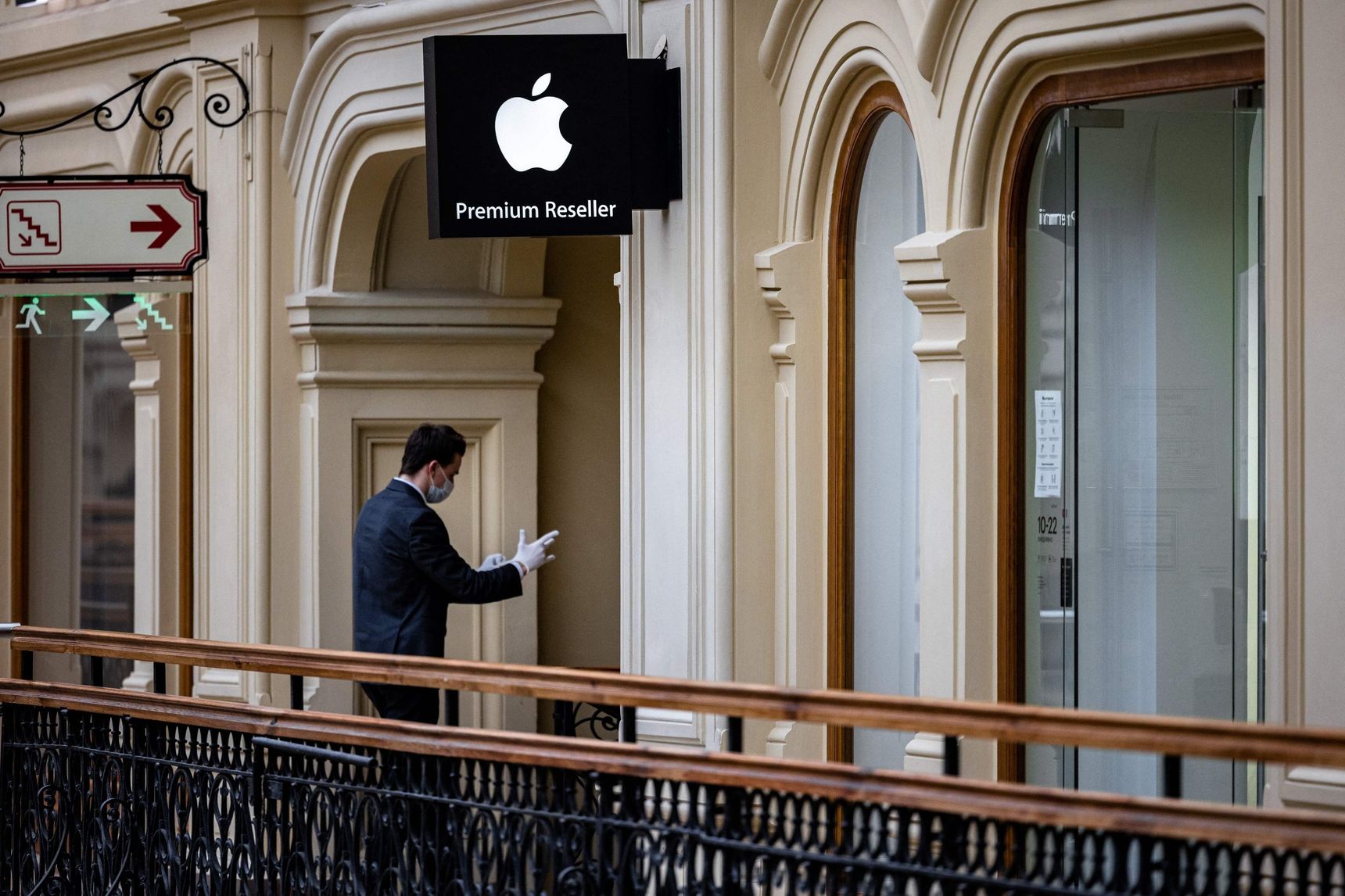Apple Says It Has Stopped All Product Sales In Russia
The tech giant had faced pressure to curtail sales following Moscow’s invasion of Ukraine.
Apple Inc. has stopped selling iPhones and other products in Russia following the country’s invasion of Ukraine.
The Cupertino, Calif., tech giant on Tuesday said the sales halt came along with blocking the download of the state-sponsored news outlets through its App Store outside of Russia.
“We are deeply concerned about the Russian invasion of Ukraine and stand with all of the people who are suffering as a result of the violence,” Apple said Tuesday. “We are supporting humanitarian efforts, providing aid for the unfolding refugee crisis, and doing all we can to support our teams in the region.”
Silicon Valley’s big technology companies have been facing greater pressure to cut off services and content to Russia. On Friday, Ukraine’s Vice Prime Minister Mykhailo Fedorov asked Apple Chief Executive Tim Cook to stop supplying Apple products and services to Russia, including halting access to the App Store.
The App Store remained operational in Russia. During the third quarter of last year, Apple held 15% of the smartphone market in Russia behind Samsung and Xiaomi, according to researcher IDC.
Last week, Apple said, it stopped the export of its products to Russian sales channels. Apple Pay has also been limited in Russia and it also disabled traffic and live incidents from its Maps in Ukraine, the company said.
In addition to Apple, Mr. Fedorov had targeted other tech giants, including a request to Elon Musk that his rocket company Space Exploration Technologies Corp. send its Starlink satellite-based internet service to Ukraine. Mr. Musk quickly obliged.
Alphabet Inc.’s YouTube has restricted access to RT and other Russian channels in Ukraine following the request of the government there. Google also disabled its live traffic data in Ukraine on Google Maps.
Dell Technologies Inc. also moved to suspend product sales in Russia. The company said Tuesday it was monitoring the situation to determine its next steps and working to assist employees affected by the conflict.
Reprinted by permission of The Wall Street Journal, Copyright 2021 Dow Jones & Company. Inc. All Rights Reserved Worldwide. Original date of publication: March 2, 2022
 Copyright 2020, Dow Jones & Company, Inc. All Rights Reserved Worldwide. LEARN MORE
Copyright 2020, Dow Jones & Company, Inc. All Rights Reserved Worldwide. LEARN MORE
This stylish family home combines a classic palette and finishes with a flexible floorplan
Just 55 minutes from Sydney, make this your creative getaway located in the majestic Hawkesbury region.
Continued stagflation and cost of living pressures are causing couples to think twice about starting a family, new data has revealed, with long term impacts expected
Australia is in the midst of a ‘baby recession’ with preliminary estimates showing the number of births in 2023 fell by more than four percent to the lowest level since 2006, according to KPMG. The consultancy firm says this reflects the impact of cost-of-living pressures on the feasibility of younger Australians starting a family.
KPMG estimates that 289,100 babies were born in 2023. This compares to 300,684 babies in 2022 and 309,996 in 2021, according to the Australian Bureau of Statistics (ABS). KPMG urban economist Terry Rawnsley said weak economic growth often leads to a reduced number of births. In 2023, ABS data shows gross domestic product (GDP) fell to 1.5 percent. Despite the population growing by 2.5 percent in 2023, GDP on a per capita basis went into negative territory, down one percent over the 12 months.
“Birth rates provide insight into long-term population growth as well as the current confidence of Australian families,” said Mr Rawnsley. “We haven’t seen such a sharp drop in births in Australia since the period of economic stagflation in the 1970s, which coincided with the initial widespread adoption of the contraceptive pill.”
Mr Rawnsley said many Australian couples delayed starting a family while the pandemic played out in 2020. The number of births fell from 305,832 in 2019 to 294,369 in 2020. Then in 2021, strong employment and vast amounts of stimulus money, along with high household savings due to lockdowns, gave couples better financial means to have a baby. This led to a rebound in births.
However, the re-opening of the global economy in 2022 led to soaring inflation. By the start of 2023, the Australian consumer price index (CPI) had risen to its highest level since 1990 at 7.8 percent per annum. By that stage, the Reserve Bank had already commenced an aggressive rate-hiking strategy to fight inflation and had raised the cash rate every month between May and December 2022.
Five more rate hikes during 2023 put further pressure on couples with mortgages and put the brakes on family formation. “This combination of the pandemic and rapid economic changes explains the spike and subsequent sharp decline in birth rates we have observed over the past four years,” Mr Rawnsley said.
The impact of high costs of living on couples’ decision to have a baby is highlighted in births data for the capital cities. KPMG estimates there were 60,860 births in Sydney in 2023, down 8.6 percent from 2019. There were 56,270 births in Melbourne, down 7.3 percent. In Perth, there were 25,020 births, down 6 percent, while in Brisbane there were 30,250 births, down 4.3 percent. Canberra was the only capital city where there was no fall in the number of births in 2023 compared to 2019.
“CPI growth in Canberra has been slightly subdued compared to that in other major cities, and the economic outlook has remained strong,” Mr Rawnsley said. “This means families have not been hurting as much as those in other capital cities, and in turn, we’ve seen a stabilisation of births in the ACT.”
This stylish family home combines a classic palette and finishes with a flexible floorplan
Just 55 minutes from Sydney, make this your creative getaway located in the majestic Hawkesbury region.






















